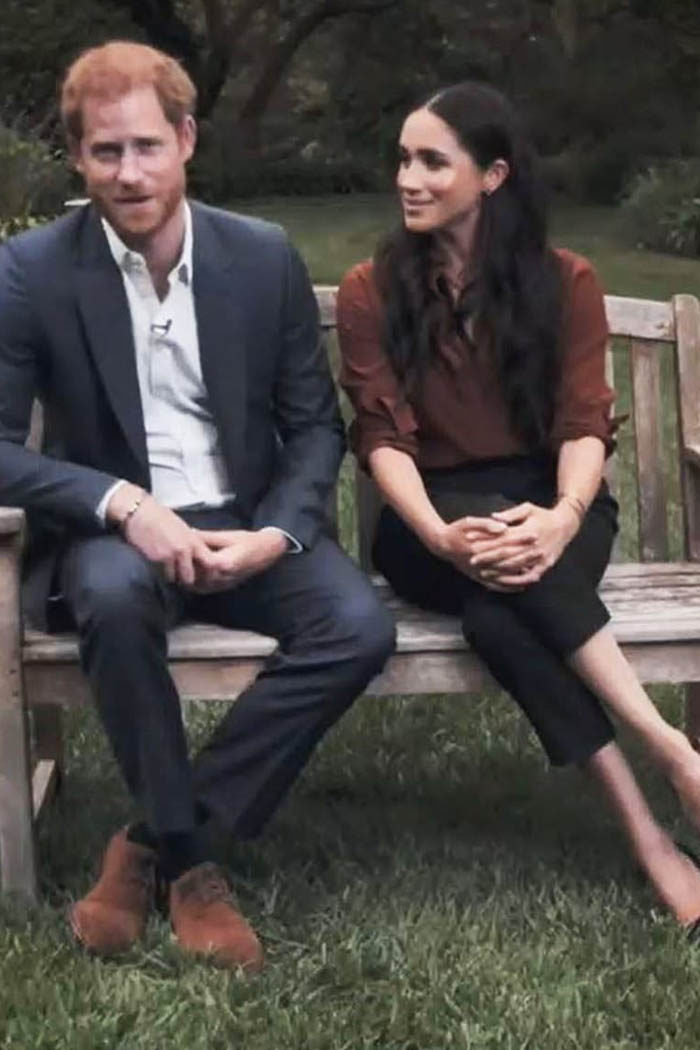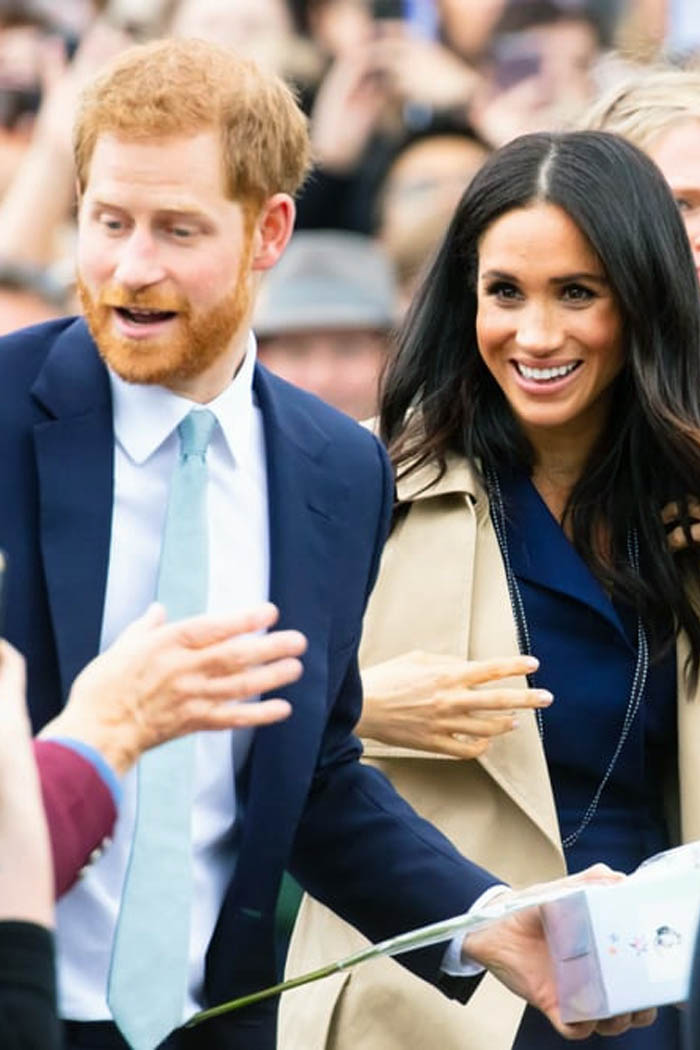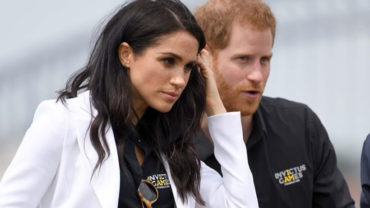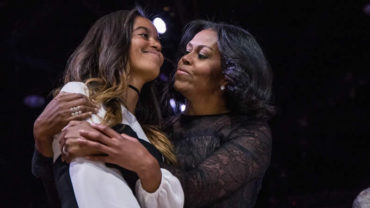On April 1 last year, the couple woke in the $23 million mansion they had borrowed from Hollywood titan Tyler Perry as plain ol’ Duke and Duchess, just two regular people who happened to have titles, a small fortune and access to the Queen’s private TikTok.
Gone was their ability to call themselves ‘Sussex Royal’, to use the styling of His/Her Royal Highness and to fulfil any official role as working members of the royal family.
Goodbye palace, hello civvy street!
Now here we are 300 days later, with Harry and Meghan busy establishing their post-royal brand as aspirant entertainment powerhouses, vegan latte moguls, and philanthropists par excellence.
And it is on that last front that I can’t help but feel like they have made a miscalculation so early out of the gate as they work to establish their post-royal philanthropic chops.
Over the weekend, Fast Company published a new interview with Harry, in which he took aim at social media, saying that “time is running out” for reform in this industry.
“Dominant online platforms have contributed to and stoked the conditions for a crisis of hate, a crisis of health and a crisis of truth,” he said.
This princely salvo comes after months of he and wife Meghan engaging with the issue.
In February last year, they visited Stanford University and met with academics before in December announcing a partnership between their new charitable entity Archewell and the Stanford-based Centre for Humane Technology which is “dedicated to radically reimagining our digital infrastructure”.
 In June, a spokesperson for the Duke and Duchess confirmed they were backing the Stop Hate For Profit which was calling for advertisers to boycott Facebook over their lack of action on the proliferation of hate on their platform.
In June, a spokesperson for the Duke and Duchess confirmed they were backing the Stop Hate For Profit which was calling for advertisers to boycott Facebook over their lack of action on the proliferation of hate on their platform.
Come August, Harry penned a piece also for Fast Company saying: “We need meaningful digital reform,” and, “The digital landscape is unwell.”
In December, they donated money to the UCLA Centre for Critical Internet Inquiry.
Tackling the digital behemoths also seems to have a personal element for the duo. Last year Meghan told the hosts of podcast Teenager Therapy, “I’m told that in 2019, I was the most trolled person in the entire world, male or female,” while in Harry’s Fast Company interview he said they had faced “the mothership for all of the harassment”.
However, the sticking point here is not the issue (which is an important one) or Harry’s decision to support it (two thumbs up!) but the choice for him to nail his colours to the mast of a cause that doesn’t really need his involvement.
Tackling the social media oligopolies and addressing the growing tide of hate and misinformation spread via Facebook, Twitter et al is a global imperative that already has considerable political momentum and public support.
Facebook is already being sued by the US government for allegedly failing to protect the privacy of users and last year, the PACT Act was introduced in Washington (with bipartisan support) aimed at forcing social media companies to be more transparent about content moderation.
Last year Joe Biden, before taking US presidential office, called the tech titans “little creeps” and slammed the industry for its “overwhelming arrogance”.
Earlier this month and prior to the publication of Harry’s interview, The Washington Post reported: “Facebook, Google and Twitter are staring down the prospect of harsh new regulations in Washington.”
The point is: Social media giants are well and truly already in legislators’ crosshairs.
 Which is why Harry’s involvement here feels a bit like Superman turning up to a bank robbery when the baddies are already surrounded by a legion of police; lovely to have him on board and part of the team but not necessary to ensure the good guys prevail.
Which is why Harry’s involvement here feels a bit like Superman turning up to a bank robbery when the baddies are already surrounded by a legion of police; lovely to have him on board and part of the team but not necessary to ensure the good guys prevail.
Yes, there is still considerable work to be done both at a governmental and grassroots level, but this movement does not need the Sussexes’ leadership to gain traction or to build momentum.
Meanwhile, there are a host of other neglected issues in the world where the couple’s involvement would profoundly and seismically change the conversation.
Consider the example of both of Harry’s parents.
In the ’80s, what made Diana, Princess of Wales’ work with the AIDS epidemic and Prince Charles’ environmental advocacy so groundbreaking (and why that work defines their legacies) is that they were using their royal platform to highlight matters that carried deep stigma and shame or were ignored by a blithely uninterested public or were largely viewed as fringe issues.
For Diana and Charles, speaking out on these topics dragged the public and media spotlight onto reprehensibly overlooked causes of the time.
The Wales, in these instances, leveraged their global might in aid of underdog causes and led the way on speaking out about issues that were withering on the margins before their involvement.
Harry and Meghan are two of the most famous people in the world and there is no CEO, politician or celebrity who would not take their call or eagerly listen to them discuss whatever disease, social ill or needy organisation they had decided to throw their sway behind.
So, why not direct that truly phenomenal power towards a charity, cause or issue that is floundering in the shadows?
With one visit to a hospital where she was photographed shaking hands with an AIDS patient, Diana immediately and irrevocably changed public attitudes to the disease. Ditto her public admissions about her struggle with an eating disorder.
Charles, today, is lauded for his decades-long commitment to tackling climate change despite the fact in the early days he was written off as a plant-talking loon.
In this vein, wouldn’t Harry’s considerable energies and talent be better focused elsewhere?
He is clearly a man driven by a deep and real desire to help make the world a better place so why not tackle some under-the-radar cause that really needs the attendant public attention, funding and media coverage that comes with the Sussex imprimatur?
For the savvy couple, it seems like something of a missed opportunity.
Still, we are only 300 days in. Let us, just for a moment, allow our imaginations to wander and wonder where the Sussexes might be in 600 or 900 or 3000 days from now. (That would be the year 2029 FYI.) Hosting Good Morning America? Inside the White House? Solving Middle Eastern peace?
Vanquishing some hideous disease alongside Bill Gates?







